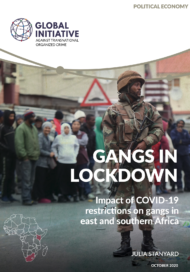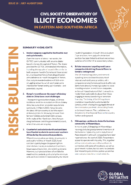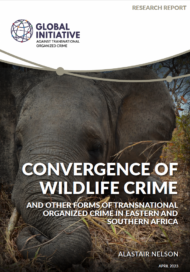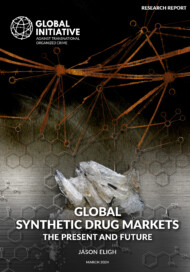Posted on 28 Oct 2020
As the coronavirus pandemic began to infiltrate East and southern Africa, authorities across the region imposed unprecedented restrictions on the movement and freedoms of their citizens.
As many observers argued in the following months, the reliance on the police to enforce these restrictions turned a public-health crisis into a security and human-rights crisis. Overnight, many in poor and marginalized communities saw their legitimate livelihoods become impossible.
But what became of the illegitimate livelihoods and illegal economies?
How did groups that were already operating outside the law react to the lockdowns?
This study explores these questions by using Cape Town, South Africa, as a lens to analyze trends across the East and southern African region. Drawing on in-depth reporting as well as interviews across the Cape Flats with gang members, community members and civil-society activists, the report charts the first hundred days of lockdown. This reporting is integrated with further research drawn from our network of researchers in Cape Town, other cities in South Africa and in Kenya and Tanzania. The report concludes that the lockdowns have brought about significant change in a number of areas, namely how gangs operate economically; the political power they wield over communities; levels of violence and street-level crime; and the relationship between corrupt law-enforcement officials and gang members.




